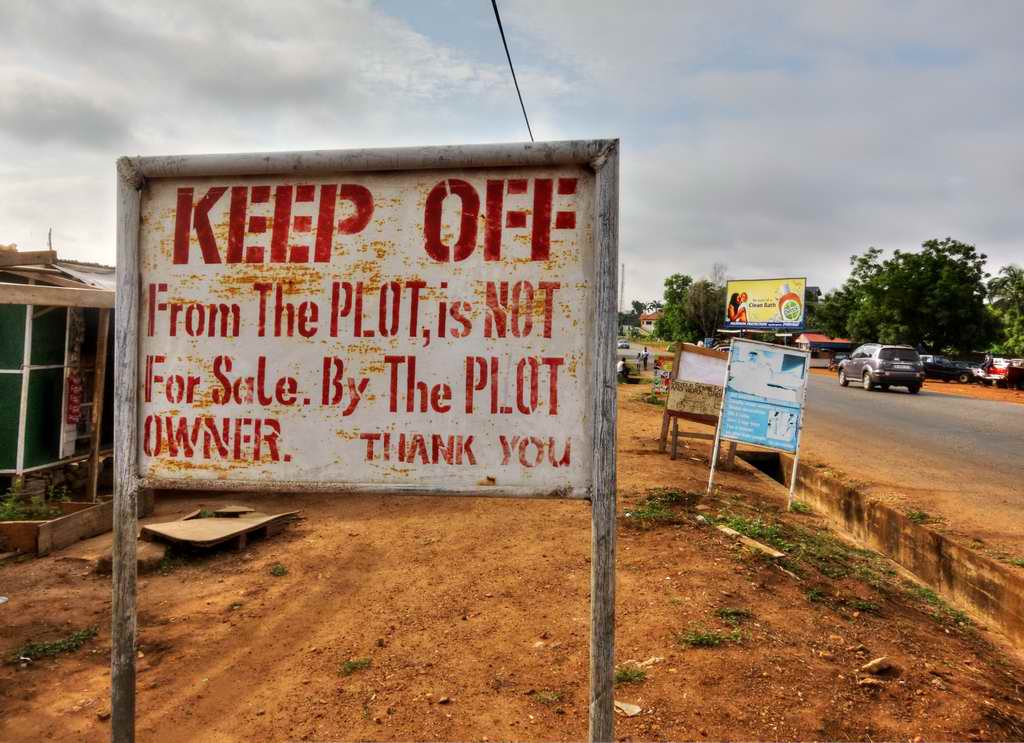
A sign on a building in Kenya declaring ownership of the land is an effort to ward of land grabbers. Photo: BBC
Kenya, which adopted the nickname “Silicon Savannah” after it caught up to the mobile technology wave, is seeking to take advantage of AI and blockchain, particularly in how blockchain could help prevent “land grabbing,” according to a BBC News story.
Blockchain, described as “a shared database with a provable, auditable and verifiable record of all changes,” could help

Joseph Mucheru, formerly head of Google in Africa, now serves as minister of Information in Kenya.
Information Minister Joseph Mucheru, the man who the team will report to, says that, among other uses, blockchain could help organize land records stored by the government. Citizens are frustrated by the lengthy wait when they want to buy, sell or verify information about land.
Possessing a title deed in Kenya does not necessarily guarantee ownership because of corrupt government officials who change land records for pay-offs. Because land ownership is so commonly disputed, many Kenyans paint “This Land Is Not For Sale” on their property to put potential land grabbers on alert that they will fight to keep their land.
If land records were housed in an immutable blockchain, proponents say, it would ensure that title deeds they own match government records. Ghe platform provides “security, efficiency and transparency,” Mucheru said. Twiga Foods, a Kenya-based food distribution company, recently announced a partnership with IBM Research to create digital profiles of informal small-scale traders⎯to be stored in a blockchain⎯to help them access credit. Only 2% of the 70% of Kenyans in the agriculture sector have access to bank loans.
read more at BBC News







Leave A Comment